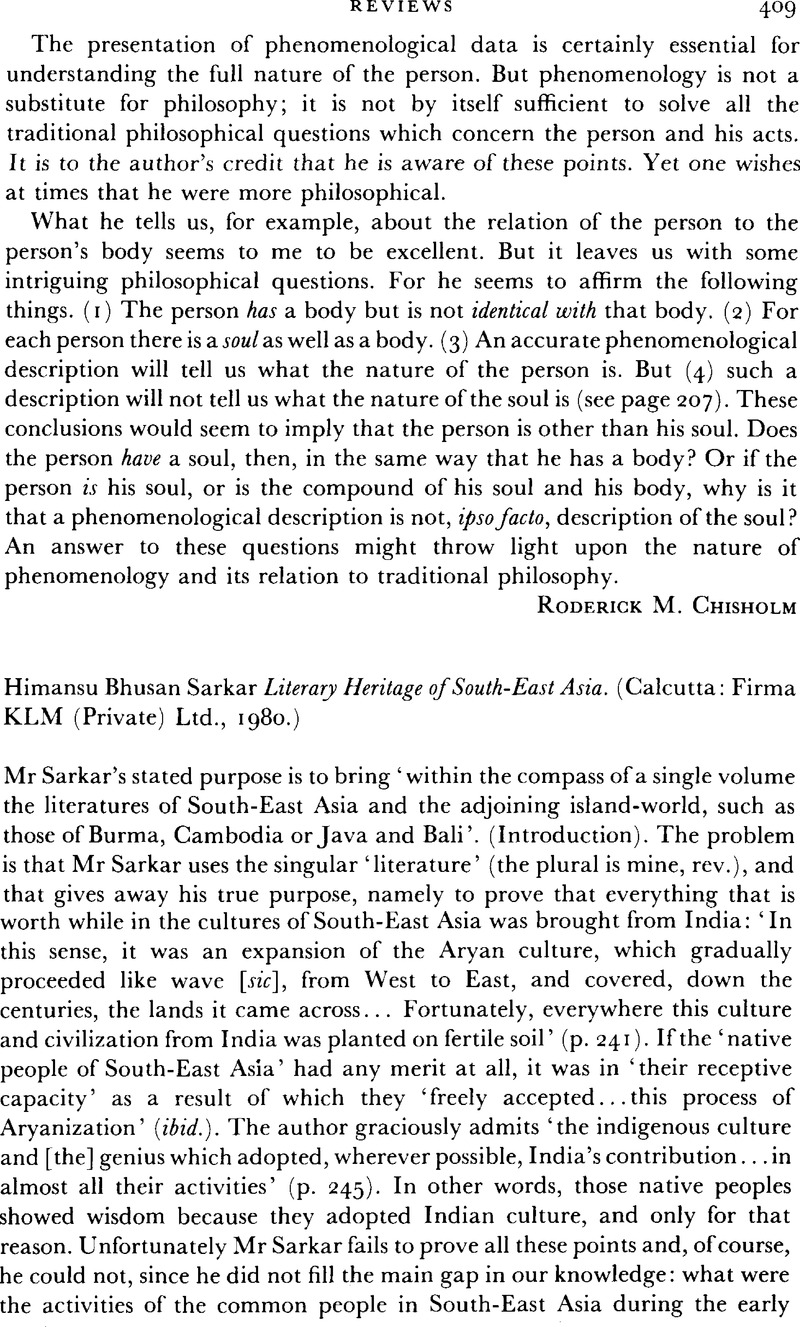No CrossRef data available.
Article contents
Himansu Bhusan Sarkar Literary Heritage of South-East Asia. (Calcutta: Firma KLM (Private) Ltd., 1980.)
Published online by Cambridge University Press: 24 October 2008
Abstract

- Type
- Reviews
- Information
- Copyright
- Copyright © Cambridge University Press 1981
References
page 410 note 1 Buddhism survived only in Thailand and on Bali as an integrated part of society (Burma is too complex to speak of one society) Elsewhere it was overrun by Islam and Communism. See for a description of the societies concerned: Coddès, G., Les Peuples de la Péninsule indochinoise (Paris, Dunod, 1962), p. 206.Google Scholar
page 410 note 2 Het Rijk van de Vijfvoudige Buddha (Amsterdam, 1962), p. 195.Google Scholar
page 410 note 3 Ferrand, Gabriel, L'Empire Sumatranais de Çrivijaya (Paris, 1922).Google Scholar
page 410 note 4 Erp, Van, Beschrijving van den Barabudur (1931, 2 vols).Google Scholar
page 410 note 5 Vlekke, B. H. M., A Histors of Indonesia (The Hague, 1965).Google Scholar
page 410 note 6 Mees, C. A., De Kroniek van Koetai (Santpoort, Holland, 1935).Google Scholar
page 410 note 7 Bosch, F. D. K., De Gouden Keim (The Golden Germ) (Amsterdam, 1948).Google Scholar
page 410 note 8 Hammond, Norman, South-Asian ArchaeologyGoogle Scholar, in particular, no. 21 Janice Stargardt, ‘The Extent and Limitations of Indian Influences on the Protohistoric Civilizations of the Malay Peninsula’ providing a bibliography on pages 301 ff.
page 410 note 9 The Oxford History of India, by Smith, V. A., Basham, A. L. and Wheeler, M. (Clarendon, 1958)Google Scholar speaks of colonies of merchants (p. 186) agreeing with Coedes (loc. cit.) that the rulers were native princes.




